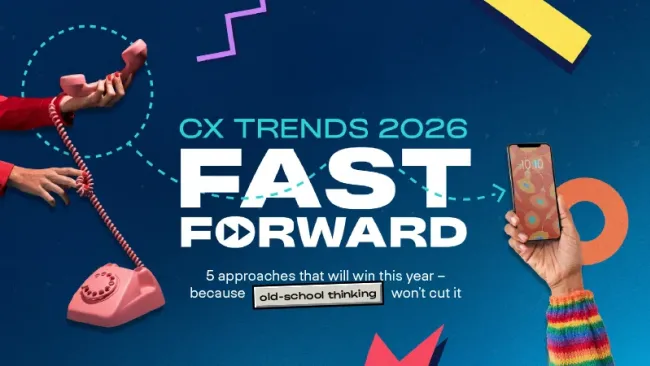Many companies struggle to support today’s omnichannel customer. Managing customer interactions across multiple channels continues to be increasingly complex for contact center services and associates as companies wrestle with a hodgepodge of channel-specific support systems.
Despite these challenges, delivering consistent omnichannel support provides significant business gains. According to an October 2013 Aberdeen Group study, businesses adopting omnichannel customer experience strategies enjoy a 91 percent greater year-over-year customer retention rate, achieving more than six times the average per customer profit margin as well as markedly superior customer lifetime values when compared to companies opting not to offer multichannel support.
To deliver the personalized and relevant support customers expect in the channel or channels of choice, contact center associates need to be able to harness the full range of available customer data. Utilizing a cloud contact center platform to integrate customer data from across multiple channel support systems (email, chat, IVR, social, mobile), as well as CRM and other ancillary systems containing transactional and other types of meaningful customer information, allows associates a full 360-degree view of customers, helping to drive sales as well as enable insightful and timely service.
As an example of such a comprehensive interaction, a customer searching an electronics retailer’s website wants to learn more about high definition TVs. After noticing the customer lingering on the web page, an associate extends an invitation to chat, which the customer accepts. After further discussion, the associate sends the customer an email with links to additional information, including online customer forums where ratings and other product insights are shared.
Catering to the omnichannel customer
One of the key obstacles preventing most businesses from meeting customers’ lofty omnichannel support expectations is the lack of flexibility with contact center systems, including an inability to follow customers as they move from one channel to the next. Contact center associates using premise-based contact center systems often have to jump between multiple screens to support customers in disparate, poorly integrated channels. Associates’ failure to provide customers with knowledgeable and timely cross-channel support experiences often results in customer dissatisfaction and churn.
To allow seamless and relevant support, companies need a contact center platform agile enough to keep pace with customers regardless of the channels used. A cloud contact center enables businesses to provide customers with timely and pertinent support across all channels used today – and tomorrow – by connecting diverse support systems under a single hood.
Flexible and intelligent contact centers have a synergistic effect on business performance, as customers receive more comprehensive and rewarding service experiences from associates with the right tools and access to customer information.
Anticipating customers’ needs
Going forward, the contact center of the future will also need to provide customers with proactive assistance. Such preemptive support may come in the form of a call reminding a customer about an upcoming medical appointment, an email advising that a favorite brand of athletic shoes are on sale, or an SMS alert from a car dealer that it’s time for an oil change.
Contacting customers proactively demonstrates that a company is acting in its customers’ best interests, and serves to build trust and strengthen loyalty. To do this, contact center associates and other customer-facing employees need real-time customer insights about customers’ behaviors, transactions, and attitudes, requiring immediate access to customer information across all channels and business systems. The use of predictive analytics can guide associates on the next-best action to take with a customer along with the most appropriate channel to initiate contact.
Through the use of predictive analytics, one of our telecommunications clients determined that customers calling about specific topics are at a higher risk of churn. The insights gained through analytics empowered managers to develop customized associate treatment strategies in order to increase its customer retention rate.
The ability to anticipate and proactively address customers’ needs is key to differentiating the customer experience. Companies evolving to be responsive to their customers through multiple channels stand to distinguish their brands from their rivals, serving to remain both modern and relevant as the inevitable new communication channels emerge and develop.
Synthesizing Knowledge and Technology to Deliver on Customers’ Omnichannel Support Expectations














